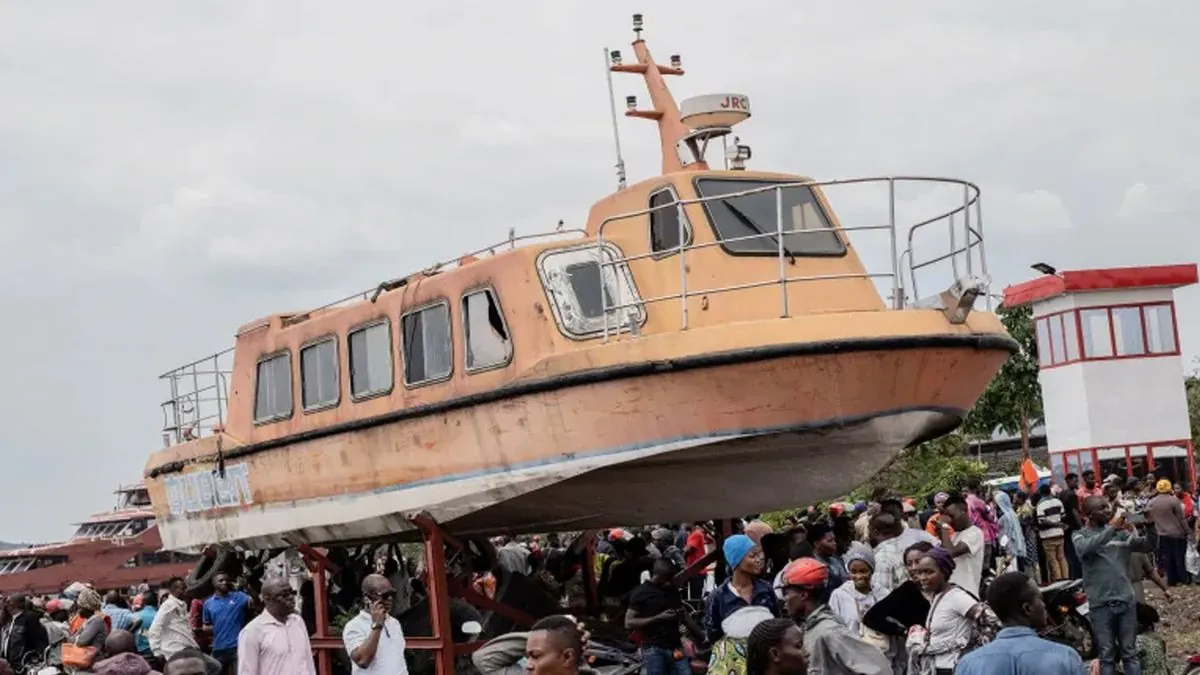Congolese authorities have initiated investigations into two recent fatal boat accidents, focusing on a tragic incident that occurred on Lake Kivu on 2024-10-03. The disaster resulted in at least 78 fatalities, with many passengers still unaccounted for.
Jean-Jacques Purusi, governor of South Kivu province, stated that the death toll is provisional and may increase. The vessel, reportedly carrying 278 people, capsized near the port of Kituku while attempting to dock. Eyewitnesses described rescue services recovering at least 50 bodies from the water.
Lake Kivu, one of the African Great Lakes, spans 2,700 km² along the border between the Democratic Republic of the Congo (DRC) and Rwanda. Its size and importance for transportation highlight the gravity of such accidents.
The boat departed from Minova in South Kivu province, heading towards Goma in eastern Congo. Footage captured by a witness shows the overcrowded vessel tilting and capsizing within seconds of approaching the port.
This incident underscores the recurring issue of boat accidents in the DRC, often attributed to overcrowding and non-compliance with maritime regulations. The country's vast size - the second-largest in Africa - and poor transportation infrastructure contribute to the reliance on water transport in many areas.
Governor Purusi cited several factors contributing to the tragedy:
1. Lack of adequate safety equipment, including life jackets
2. Overcrowding
3. Negligence
4. Adverse weather conditions, with a strong storm reported earlier that day
The DRC's complex political landscape and ongoing conflicts have exacerbated transportation challenges. The M23 rebel group's activities have made the road between Goma and Minova impassable, forcing many food traders to resort to water transport on Lake Kivu.
Elia Asumani, a shipping agent, expressed concern about the dangerous situation, stating, "We are afraid. This shipwreck was predictable."
The tragedy has deeply affected local communities. Bienfait Sematumba, a 27-year-old resident, lost four family members in the accident. He lamented, "They are all dead. I am alone now. If the authorities had ended the war, this shipwreck would never have happened."
"We accuse authorities of negligence in the face of growing insecurity in the region."
The DRC's Ministry of Justice emphasized that the investigations aim to "clarify the circumstances of these unfortunate events and establish responsibilities so that the people who are at the root of these accidents are prosecuted before the competent courts."
As the DRC grapples with this latest tragedy, it's worth noting that the country faces numerous challenges beyond transportation safety. With a population of around 108 million people as of 2024, the nation struggles with political instability, despite its vast mineral wealth and natural resources, including the world's second-largest rainforest.
The Lake Kivu disaster serves as a stark reminder of the urgent need for improved safety measures and infrastructure development in the DRC, a country with immense potential but facing significant obstacles in ensuring the well-being of its citizens.
